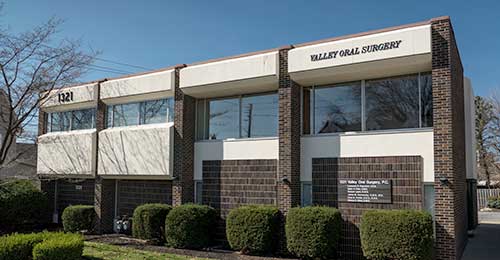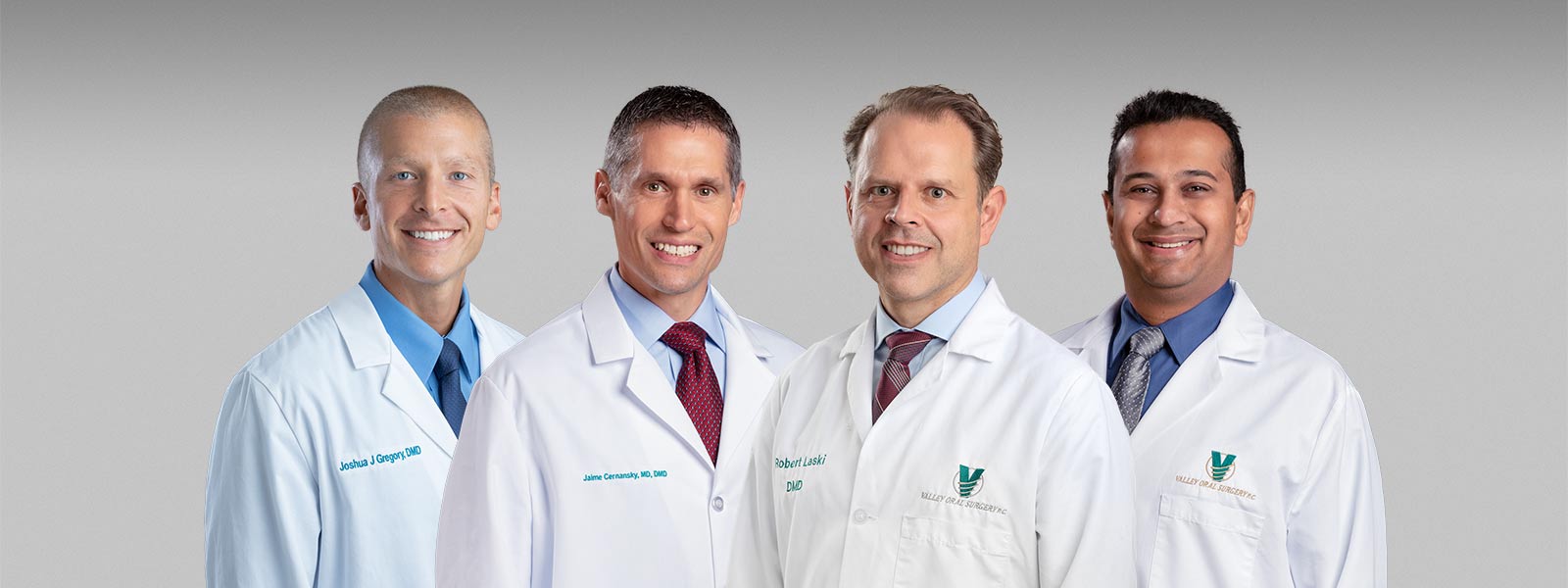
DENTAL IMPLANTS IN BETHLEHEM, PA
Board-certified. Advanced 3D imaging.
If you live in or near Bethlehem, PA, and are looking for dental implant surgery to help improve your smile or replace missing or broken teeth, trust the board-certified oral surgeons of Valley Oral Surgery.
At our Bethlehem PA oral surgery office you receive a high level of care and state-of-the-art 3D imaging for precise implant placement!
- Board-Certified Oral Surgeons
- Advanced 3D Imaging for More Accurate Results
- Since 1983, the Lehigh Valley’s Trusted Dental Implant Center – Now in Lehighton!
- Opioid-Free Pain Management
Dental implants for all of Northampton County, including Allen Township, Bangor Borough, Bath Borough, Bethlehem City, Bethlehem Township, Bushkill Township, Chapman Borough, East Allen Township, East Bangor Borough, Easton City, Forks Township, Freemansburg Borough, Glendon Borough, Hanover Township, Hellertown Borough, Lehigh Township, Lower Mount Bethel Township, Lower Nazareth Township, Lower Saucon Township, Moore Township, Nazareth Borough, North Catasauqua Borough, Northampton Borough, Palmer Township, Pen Argyl Borough, Plainfield Township, Portland Borough, Roseto Borough, Stockertown Borough, Tatamy Borough, Upper Mount Bethel Township, Upper Nazareth Township, Walnutport Borough, Washington Township, West Easton Borough, Williams Township, Wilson Borough, and Wind Gap Borough.
Request Your Bethlehem Dental Implant Consultation
Valley Oral Surgery - Bethlehem PA
Watch Our Dental Implant Videos
Judy explains her dental extraction/implant
procedure experience.
Teri talks about her dental implant experience at Valley Oral Surgery.
Lehighton PA Dental Implants
Since 1983, the board-certified surgeons of Valley Oral Surgery have offered the most experience and latest surgical techniques for dental implant surgery in the Mahoning and Lehigh valleys.
Our surgeons were the first surgeons trained to place dental implants and have over thirty years of experience. Valley Oral Surgery offers state-of-the-art imaging technology (3D computer tomography). Valley Oral Surgery was the first office to offer this advanced imaging technique in an office setting. There is no need to go to an imaging center or hospital to attain this advanced study. Of interest, Dr. Popowich and Dr. Grim were personally trained by Dr. Per Ingver Branemark, the father of dental implantology. Both doctors were one of the first 50 oral surgeons trained in the United States for the placement of dental implants.
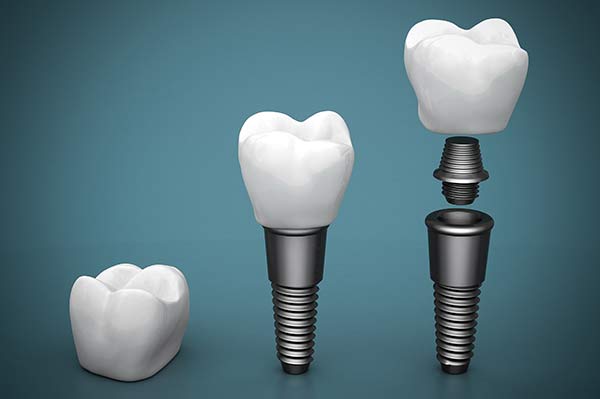
View our Dental Implant Brochure
Why replace my missing teeth?
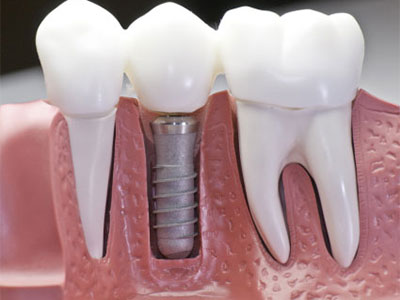
Do I have options?
You can select from a number of different options to replace your missing teeth – from temporary to long-lasting solutions.
Am I a good candidate?
A good candidate is anyone missing one or more teeth, or who is unhappy with their dentures. Age is not a factor. However, smoking, diseases such as diabetes, and radiation therapy to the area, have been shown to lower the success rate of implant placement. To determine the best choice of therapy appropriate x-rays will be taken to ascertain the bone levels available as well as determining how many implants would be beneficial. Detailed x-rays may also be required if additional information is needed. Valley Oral Surgery offers the latest imaging technology, three dimensional CT technology in their office.
What is a dental implant?
A natural tooth consists of a root and a crown. If you compare natural teeth to implant supported replacement teeth, you will see that they have the same basic parts. Both have a crown (the visible part used to chew food). Both have a root that holds the tooth securely under the gum and is anchored to the jaw. The difference is that the implant is made of titanium – the same well accepted material used by surgeons for artificial joints. When you lose a tooth you lose both the root and the crown. To replace the tooth, the surgeon first replaces the root with a small dental implant. Time is allowed for the bone to heal and grow around the dental implant. A support post (abutment) is then placed on the implant an a new replacement tooth (crown) is placed on top of the abutment. In many cases a temporary replacement tooth can be attached to the implant prior to the permanent crown. If all of your teeth are missing, a variety of treatment options are available to support the replacement teeth (click to learn more).
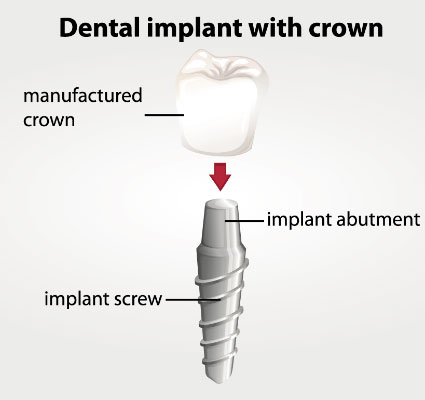
How do you place dental implants?
The procedure to place an implant takes typically 30-60 minutes for one implant and only 2-3 hours for multiple implants. The number of appointments and time required varies from patient to patient. The surgeon will bring great precision and attention to the details of your case. Prior to surgery, you may receive antibiotics and for greater comfort, intravenous sedation to help alleviate any anxiety you may have regarding the procedure. These options are discussed with you at your consultation appointment. A local anesthetic will also be administered to numb the area where the implant will be placed. When you are comfortable, the surgeon makes a small incision in the gum tissue to reveal the bone, create space utilizing a special instrument and gently inserts the titanium implant. The top of this implant is often visible through the gum. Sometimes it is better in the early stages to have the implant covered by the gum tissue. Now the healing begins. The length of time varies from person to person, depending upon the quality and quantity of bone. In some cases, implants may be restored immediately after they are placed. The surgeon will advise you on follow up care and timing. After the initial phase of healing, the surgeon places an abutment (temporary support post) onto the implant during a brief follow up visit. This allows gum tissue to mature and provides access to the implant. How long your mouth needs to heal is determined by a variety of factors. Follow up care is needed to ensure that your mouth is healing well and to determine when you are ready for the restorative phase of your treatment. On occasion it may be beneficial to perform a soft tissue graft to obtain stronger, moer easily cleaned and natural-appearing gum tissue in the area around the implant. This process involves moving a small amount of gum tissue from one part of your mouth to the area around the implant. Whether it is one tooth or all of your teeth that are being replaced, your dentist will complete the restoration by fitting the replacement tooth (crown) to the dental implant.
When are dental implants placed?
Implants are often placed several months after extraction. At times, an implant may be placed immediately as the same time of tooth extraction. This may involve a little more risk, but it simplifies the process – you won’t have to wait for another appointment to place the implant. When infection or other problems within the bone are present, immediate implant placement is not the best treatment. If your tooth has been missing for some time, the adjacent support bone is likely to grow thinner and shrink. This occurs because the root of the natural tooth has been present to stimulate the bone. As much as one-third of your jaws thickness can be lost in the year following tooth extraction. If you are missing enough bone, you may benefit from having additional bone grafted into the area. This ensures the implant will be adequately supported when it is placed in the jaw.
Frequently Asked Questions
DO I HAVE ENOUGH BONE?
After tooth extractions if the walls of the socket are very thick they will usually fill naturally with new bone in 2-3 months. However, when the walls of your socket are very thin (such as in your upper and lower front teeth), this type of healing will not be as predictable. In these situations, a bone graft is often placed at the time of tooth extraction to help your body fill in the empty socket with bone. This step will maintain the width and volume of bone you will need for implant placement several months later. There may be inadequate bone for implant placement if your tooth was removed many years ago and your bony ridge is extremely thin. In this case, a bone graft can be placed next to the thin bone and allowed to heal for 4-5 months. After the graft has fused to your pre-existing bone, the ridge will be re-entered and the implant placed. Bone grafting is usually a relatively comfortable office procedure. Many different bone grafting materials are available, including your own bone. You may also need bone grafting if the sinus cavities in your upper jaw are very large, or very low and extend into the tooth bearing areas. This often occurs when teeth in the back of a person’s upper jaw had been removed many years before, and the amount of bone available for implant placement is limited. A “sinus grafting procedure” is then required. During the procedure, the membrane that lines the sinus will be located and elevated. Bone will then be added to restorative bone height to ensure that dental implants of an adequate length can be placed.
HOW MANY IMPLANTS DO I NEED?
WHAT IF I AM MISSING ALL OF MY LOWER TEETH?
One option is to have two implants placed in your lower jaw and a denture made that snaps onto these implants. This option allows your lower denture to be more stable while chewing then without implants. However there will still be movement of your lower denture, however chewing and functioning is greatly increased. As with all removable replacement teeth, you will still need periodic appointments for denture adjustment by your dentist.
Another option involves placing 4-6 implants, depending on your jaw size or shape, into your lower jaw. After healing is complete, the implants are connected with a custom made support bar. Your new denture will be made with special internal retention clips that attach onto the support bar, enabling the denture to snap firmly into place. This is called an “over denture”. The advantage of this option is that it is much more stable than the first option and allows very little denture movement. Your denture is still removable for easy cleaning and maintenance.
A third option involves placed 5 or more implants into your jaw and attaching a permanent set of teeth. The teeth are held in place by screws that secure to the support post. It doesn’t touch the gum tissue, which allows you to clean under the permanent teeth without removing it. These permanent teeth will replace all of your missing lower teeth and will not be removed except at maintenance visits if necessary. Although cleaning under your teeth without removing them is more time consuming and requires more dexterity, many patients who want permanent teeth prefer this option. (click here for more information – restorative options all teeth).
The final option is to have all of your teeth individually replaced so that they will appear to be growing out of your gum tissue and will most closely resemble the appearance of your natural teeth. This option usually requires 8 or more implants. Separate abutments or support posts for each of these implants will be made and crowns for each missing tooth will be placed. These teeth are often joined together for strength and support. Overall this is the most costly option, because it requires the most implants and individual replacement tooth fabrication. Your replacement options may also be limited by the current size and shape of your jaw bone.
WHAT IF I AM MISSING ALL OF MY UPPER TEETH?
Newer advanced treatments are also available. Several new options available by Valley Oral Surgery include the All on Four technique, the Teeth in a Day technique and zygomatic implants.

